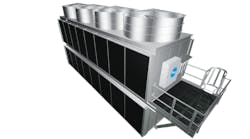Complying with a set of well-thought-out and well-defined processes is one of the most important contributors to an organization’s sustainable performance and growth.
Companies that reach for a higher level of operational excellence reap numerous benefits -- a systemic, evolving and effective approach to business operations; a continually productive and innovative workforce; and an organization that consistently realizes sustainable growth and increasing valuation.
But what exactly is “operational excellence”? It isn’t necessarily a destination; rather, it is an ongoing journey that organizations continuously travel. It focuses on minimizing and managing downside risks while maximizing an operation’s performance and shareholder value.
Along the way, numerous factors are essential to the success of the journey. One of them is operational discipline.
Discipline: A Critical But Challenging Step toward Operational Excellence
It isn’t unusual to confuse operational excellence with operational discipline. While the two are closely linked -- indeed, the former cannot be realized without the latter -- operational discipline is but one important component among others along the journey to operational excellence.
DuPont Sustainable Solutions (DSS) defines operational discipline as “the deeply rooted dedication and commitment by every member of the organization to carry out each task the right way every time.”
Simply put, operational discipline means complying with a set of well-thought-out and well-defined processes, and consistently executing them correctly. It’s an essential ingredient when trying to achieve operational excellence.
More on operational excellence on IndustryWeek.
IndustryWeek is an NED companion site within Penton's Manufacturing & Supply Chain Group.










